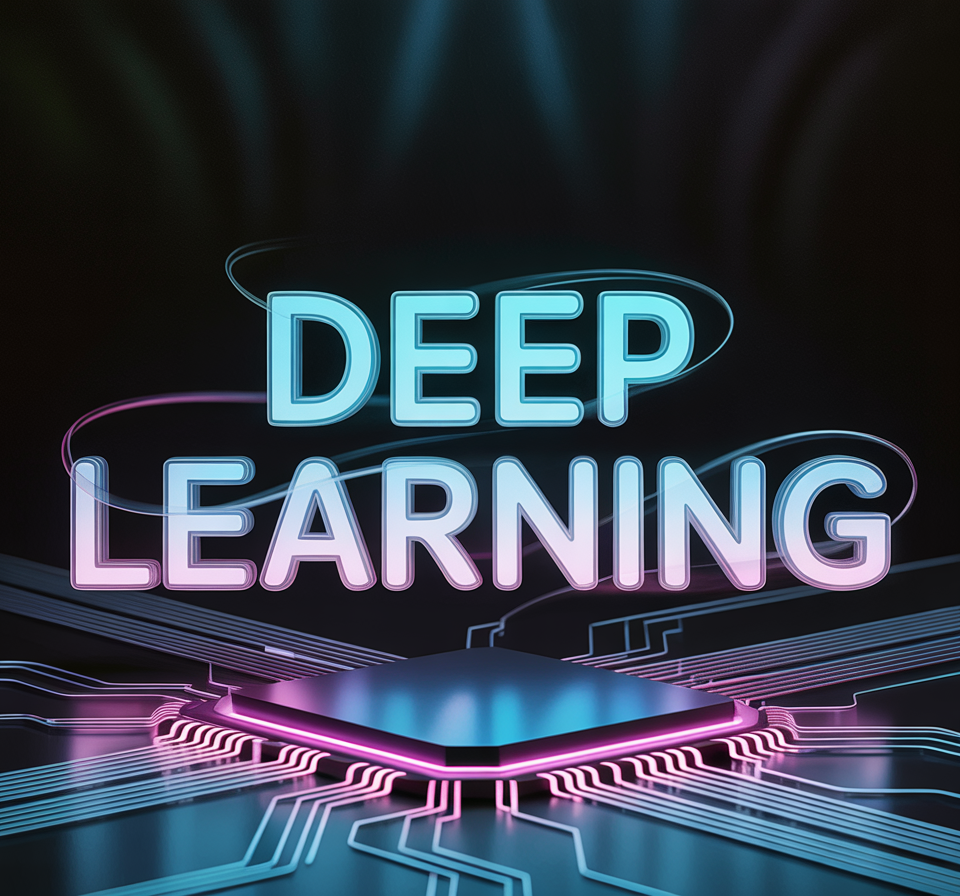Home / Blog / Deep Learning: What It Means for Business in 2025
This blog explores how deep learning is reshaping modern business by enabling smarter automation, faster insights, and innovative products. Learn how leaders across industries are using deep learning to solve real problems from personalization and fraud detection to supply chain optimization and intelligent assistants.
30 Jun, 2025

Deep Learning: What It Means for Business in 2025?
Deep learning is no longer confined to academic labs or niche R&D departments. It’s quietly powering real business decisions, predicting outcomes, optimizing operations, and personalizing customer experiences at scale. If artificial intelligence is the engine of digital transformation, then deep learning is its most powerful gear.
But what exactly is deep learning? Why is it driving so much innovation? And how can businesses leverage it to stay ahead?
Let’s break it down.
The Viral Rise of Deep Learning:
In recent years, headlines around AI breakthroughs like ChatGPT, image generation, and autonomous vehicles have one thing in common: deep learning models behind them.
From social media filters that alter your face in real time to enterprise-grade AI models that detect fraud within milliseconds, deep learning is everywhere. It’s trending on platforms like LinkedIn, Twitter, and YouTube because it’s solving problems we once thought only humans could.
And businesses are paying attention.
What Is Deep Learning?
Deep learning is a subset of machine learning that uses artificial neural networks loosely inspired by how the human brain works to analyze data and make decisions.
Unlike traditional machine learning, which requires structured data and manual feature selection, deep learning can process unstructured data (like images, text, audio) and automatically extract complex patterns.
Key characteristics:
Why Deep Learning Matters to Businesses?
Deep learning enables companies to make decisions faster, more accurately, and at scale. Here’s how:
1. Prediction and Forecasting - Sales trends, customer churn, equipment failure deep learning improves forecasting models with higher accuracy.
2. Automation at Scale - Deep learning automates complex processes like document classification, sentiment analysis, or fraud detection in real-time.
3. Data-Driven Personalization - Platforms like Netflix, Amazon, and Spotify use deep learning to personalize user experiences, increasing engagement and revenue.
4. Operational Efficiency - In supply chains and logistics, deep learning identifies bottlenecks and suggests real-time optimizations.
5. Customer Support Transformation- AI-powered chatbots and voice assistants, trained on deep learning, handle inquiries with human-like understanding.
Deep learning doesn’t just enhance your data it turns it into a strategic asset.
Real-World Applications of Deep Learning:
Here are some practical, proven applications across industries:
Healthcare
Finance
Retail and E-commerce
Manufacturing
Transportation & Logistics
These examples reflect just a fraction of what’s possible when deep learning is embedded into business strategy.
Challenges and Considerations:
Deep learning is powerful but it’s not plug-and-play. Businesses should prepare for these challenges:
Understanding these challenges upfront enables better planning and smoother integration.
How Businesses Can Start Using Deep Learning Today?
1.
Identify
High-Impact Areas
Focus on business functions
where automation, prediction, or personalization will create measurable ROI
such as customer service, marketing, operations, or risk.
2.
Audit
Your Data
Evaluate the data you
already have. Deep learning is most effective with structured pipelines and
labeled datasets.
3.
Build
vs. Buy Decision
Depending on internal
expertise and resources, you may opt for off-the-shelf deep learning tools or
custom model development.
4.
Partner
with Specialists
Collaborate with AI
development partners or consultants who understand both the technology and your
industry
5.
Pilot,
Measure, Scale
Start small, monitor key
metrics (accuracy, efficiency, cost reduction), and scale what works across the
organization.
The Future of Deep Learning in Business:
As deep learning models become more accessible and cost-effective, we will see rapid adoption across industries. New frontiers like multimodal AI (combining text, vision, audio) and reinforcement learning will unlock even more possibilities.
Organizations that embrace deep learning now will lead the shift toward predictive, proactive, and autonomous business models. It’s not just about innovation it’s about maintaining relevance in an AI-driven market.
The technology is ready. The data is there. The question is: is your business ready to act?
Empower your business with intelligent automation and predictive insights start building your deep learning advantage with guidance from 10turtle.